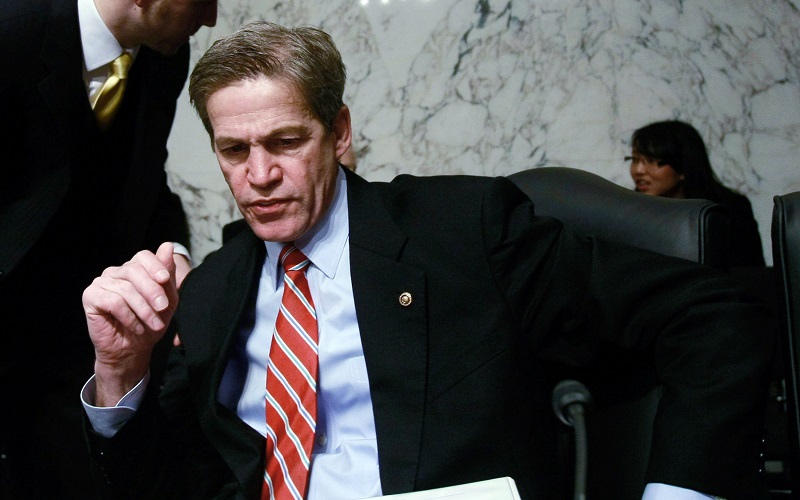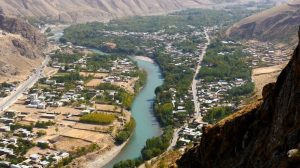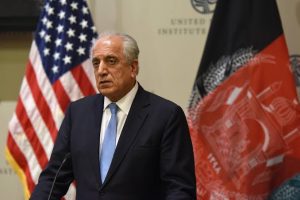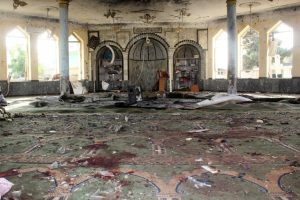The Saudi Lobbying Complex Adds New Member: GOP Super PAC Chair Norm Coleman

MEP: As the Obama administration counts on Saudi Arabia as a key ally against ISIS, the kingdom flexes its muscles in Washington.
The Obama administration has signaled a new effort to partner with the Saudi Arabian government as its key ally in the region against the Sunni militia group in Syria and Iraq known as the Islamic State in Iraq and Syria (ISIS), dispatching Secretary of State John Kerry to Jeddah for a heavily symbolic meeting with the Saudi king on the September 11 anniversary this fall.
At the same time, however, Washington remains saturated with Saudi money and the influence it buys, even as the US economy’s dependence on imports of Saudi crude oil has waned.
The Saudi lobbying presence manifests itself in a variety of ways.
Disclosures show that the latest addition to the Saudi government payroll includes former US Senator Norm Coleman, a Republican from Minnesota who leads one of the largest Super PACs in the country.
Many influential nonprofits in Washington have relied upon Saudi government support. The confirmation hearing for Defense Secretary Chuck Hagel revealed that the Atlantic Council, a think tank that advises lawmakers on foreign policy, received contributions from Saudi Arabia, among other foreign governments. (Such legally and ethically questionable financial relationships between think tanks and foreign governments were scrutinized in a lengthy New York Times exposé on September 6, 2014, and there is now a move afoot to require disclosure of such ties for congressional testimony.) Hagel previously served as chairman to the organization. The Saudi government has also provided funds to what is now known as the Bill, Hillary & Chelsea Clinton Foundation, the Middle East Policy Council, the Middle East Institute and the Smithsonian Freer Museum of Art.
Several organizations connected to the kingdom play an active role in policy debates. Khalid Alnaji, a registered agent of the Saudi government and president of the US subsidiary of the Saudi Arabian national oil company ARAMCO, sits on the board of the American Petroleum Institute, the powerful lobby group that funds several conservative nonprofits and sponsors election-season television advertisements. On September 17, the former Ambassador Robert Ford, a senior fellow at the Middle East Institute, testified before the Senate Foreign Relations Committee on the need to arm Syrian rebel groups.
Throughout the years, Saudi Arabia has retained numerous law and lobbying firms to influence American public opinion and policy.
The contract to work with Coleman was registered in July through Hogan Lovells, a law firm where Coleman has worked since 2011, after being defeated in his re-election campaign in 2008.
In addition to Hogan Lovells, the Saudi government counts several other firms, including Squire Patton Boggs and Qorvis-MSLGROUP, as part of its lobbying operation. As Al-Monitor reported, the Saudi kingdom’s relationship with “Qorvis dates back to 2001, when then-Saudi Ambassador Bandar bin Sultan inked a $3.2 million deal for an image makeover after ‘favorability toward Saudi Arabia…declined significantly’ among ‘Washington insiders’ in the wake of the terror attacks.”
Qorvis-MSLGROUP’s latest disclosure reveals that the firm has suggested story ideas to The Weekly Standard and NPR, and pitched other interviews on behalf of the Saudi government. The disclosure also shows that the Saudi Embassy, through Qorvis-MSLGROUP, manages the Twitter account @SyrCoalition, which is touted as the “official” voice of the Syrian opposition to Bashar al-Assad.
What’s notable about the hiring of Coleman is that he appears to be the first leader of a significant Super PAC to simultaneously lobby for a foreign government.
Although lobbyists for domestic corporate and union interests have helmed Super PACs and big spending efforts in the past, Coleman’s dual role as a Saudi lobbyist and a leader of the twin campaign entities appears unprecedented.
As the Obama administration has opened nuclear negotiations with Iran and refused to bomb Assad last year, Saudi Arabia has sought to forcefully shape the conflict in Syria on its own, and has reportedly stepped up weapons shipments to Syrian rebels, including to Islamic militants tied to Al Qaeda and other anti-American forces.
Numerous media reports and social media postings have linked individuals based in Kuwait, Qatar and Saudi Arabia with efforts to raise money for ISIS. One campaign run by a Saudi sheikh who is based in Syria and “close to Al Qaeda” operates a fundraising drive called “Wage Jihad With Your Money,” promising donors “silver” or “gold status” for those who provide money for bullets or mortar rounds, according to a report in The New York Times. The Saudi government, however, has denied allegations that it has financed terrorist groups such as ISIS.





